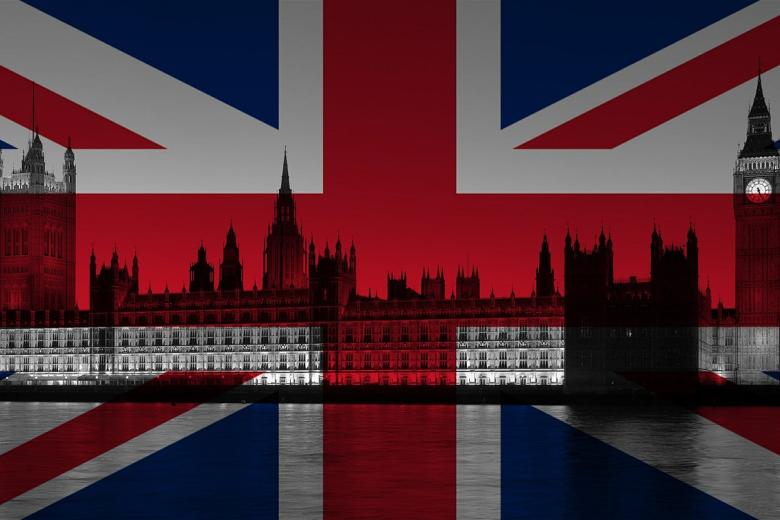November Surprise
How an ordinary citizen could very well delay the UK’s withdrawal from the European Unio. They say that the best-laid plans sometimes do not work out. That’s assuming that there is a plan in the first place.
On Thursday morning, the Queen’s Bench Division of the High Court of England & Wales (“the Court”) threw the strategy of the United Kingdom Government (to the extent that it was actually existent or recognizable) into complete disarray, when it decided that Prime Minister Theresa May and her Cabinet could not unilaterally trigger Article 50 of the Treaty on European Union (TEU).
The following post is a summary of the key arguments deployed by the Court in its judgment in R (ex parte Miller) v the Secretary of State for Exiting the European Union as it reached its decision to prevent the unilateral triggering of Article 50. Essentially, the Court was faced with the question whether the UK Government had the authority to exercise its residual powers under the country’s constitutional arrangement (“the royal prerogative”) to trigger an Article 50 TEU notification.
At the outset, the Court is at pains to reassure the parties and (presumably) the wider world that it is not casting a value judgment on Brexit - rather, it is pronouncing on the legal question of whether the Article 50 notification can be triggered without Parliament’s involvement. Having subsequently dealt with questions of jurisdiction and standing, the Court proceeds to deal with the merits of the case.
For starters, it examines Article 50 TEU with a view of determining its effect on the rights of British citizens. The Court concludes by affirming that the triggering of a withdrawal would have the direct effect of eliminating all the rights British citizens currently enjoy under EU law, particularly as the latter would cease to apply upon the country’s exit from the European Union - notwithstanding the (remote) possibility of the mandatory two-year period for negotiations being extended by the European Council.
In the following part (paras 18 to 23), the Court reaffirms the principle of parliamentary sovereignty, as already outlined in a myriad of cases including R (Jackson) v Attorney General and then (paras 24-31) examines the royal prerogative. In summary, the Court finds that the UK Government cannot displace Parliament’s rights through use of its residual powers – especially when the exercise of said prerogative will result in the loss of rights or a change in the law (see The Zamora).
Subsequently, the Court recalls the central tenets of EU law, including direct effect and the primacy of EU law, including the key role played by the European Court of Justice in this regard (paras 37 to 40). The Court then transitions (paras 41 to 42) to an analysis of the European Communities Act 1972 ((“ECA 1972”), through which the United Kingdom incorporated its obligations arising from the 1972 Accession Treaty into domestic law). Siding with the argument made by the Lead Claimant, the Court confirms that the ECA 1972 is indeed a constitutional statute (paras 43 to 44).
In the next section (paras 45 to 54), the Court conducts a line-by-line analysis of the ECA 1972. In effect, the Court concludes that the Act was supposed to give direct effect to EU law in British domestic law and require national courts to follow the interpretations of EU law adopted by the European Court of Justice. Having concluded that there is no practical difference between a withdrawal from the European Union under Article 50 or a withdrawal under international law, the Court then proceeds to a rights-based examination of the scheme of the ECA 1972.
In broad terms, the Court identifies three categories of rights: rights capable of being replicated by UK law (Category 1 rights), rights enjoyed by British citizens in other EU Member States (Category 2 rights) and rights that cannot be replicated in UK law (Category 3 rights). Whilst the Secretary of State had effectively conceded that Category 1 rights would be lost upon withdrawal, the Court evaluated whether UK citizens would be deprived of Category 2 and 3 rights. Its conclusion was in the affirmative. In this regard, the High Court deems the elimination of the European Court of Justice’s jurisdiction, including the mandatory seeking of a preliminary ruling in certain situations, to represent a substantial loss in rights (paragraphs 59 and 64). Once again, following the lead of the Lead Claimant’s counsel, the Court then cites several pieces of legislation related to the country’s obligations under the ECA 1972 (paras 67 to 72). In paras 73 to 76, the Court then summarizes the main arguments advanced by the Parties to the case (see also here).
It is from para 77 that the Court gets to the principal discussion of the merits of the case. It rejects the Secretary of State’s submission that the constitutional principle outlined in The Zamora does not apply in this case. Referring to the principle that the Crown is not permitted to use its powers to change domestic law and the principle that the Crown’s prerogative power only applies in the context of international relations, the Court rejects the Secretary of State’s submissions in regard to the implicit retention of the Government’s prerogative powers within the legislative scheme of the ECA 1972 (para 82 to 91). In doing so, the Court distinguished R v Miller from the Rees-Mogg case (which was primarily centred on the United Kingdom’s ratification of the Protocol on Social Policy – and the Crown’s ability to ratify it). The Court later pivots towards its conclusion that Parliament had intended to give full effect to EU law rights within British national law, and entrenched them against implied abrogation by use of the royal prerogative (para 94). The subsequent passages of the judgment only serve to reinforce the arguments made by the Claimant, particularly in regard to Laker Airways – but also De Keyser and Fire Brigades Union.
What’s next?
The Supreme Court has already scheduled arguments regarding the (already announced) appeal of the decision by the UK Government for 2 to 5 December 2016. Needless to say that the Supreme Court case will be a landmark moment in English legal history, especially given that the nation’s highest court will ultimately pronounce on the limits of executive power and the rights of the legislature in the United Kingdom.
Does this stop Brexit?
No, it doesn’t. The political choice made in the 23 June referendum still stands. However, should the reasoning of the High Court indeed be confirmed by the Supreme Court, expect a heated debate in both Houses of Parliament about issues of constitutional propriety, popular sovereignty and executing the expressed will of the British people (depending on which view one takes on this debate). At this time, despite the overwhelming majority of Members of Parliament favouring EU membership, a renunciation of the referendum results would be tantamount to political suicide.
-
Niet van A naar Beter, maar van Alexander, naar Boris, naar Calamity
Een levende cursus constitutioneel recht en tevens een Shakespeareaans drama of Griekse tragedie. Dat is het schouwspel in het Verenigd (of: Verdeeld) Koninkrijk.

-
Faites vos jeux
Britain gets a hard-fought extension, with incalculable consequences.

-
Change of course?
With options running out before the United Kingdom faces yet another critical deadline, Prime Minister Theresa May tries one last (desperate) gamble to “save Brexit” – reaching out to the Labour Party. Will it be successful? Which are the options remaining on the table? What could happen next? Here...
